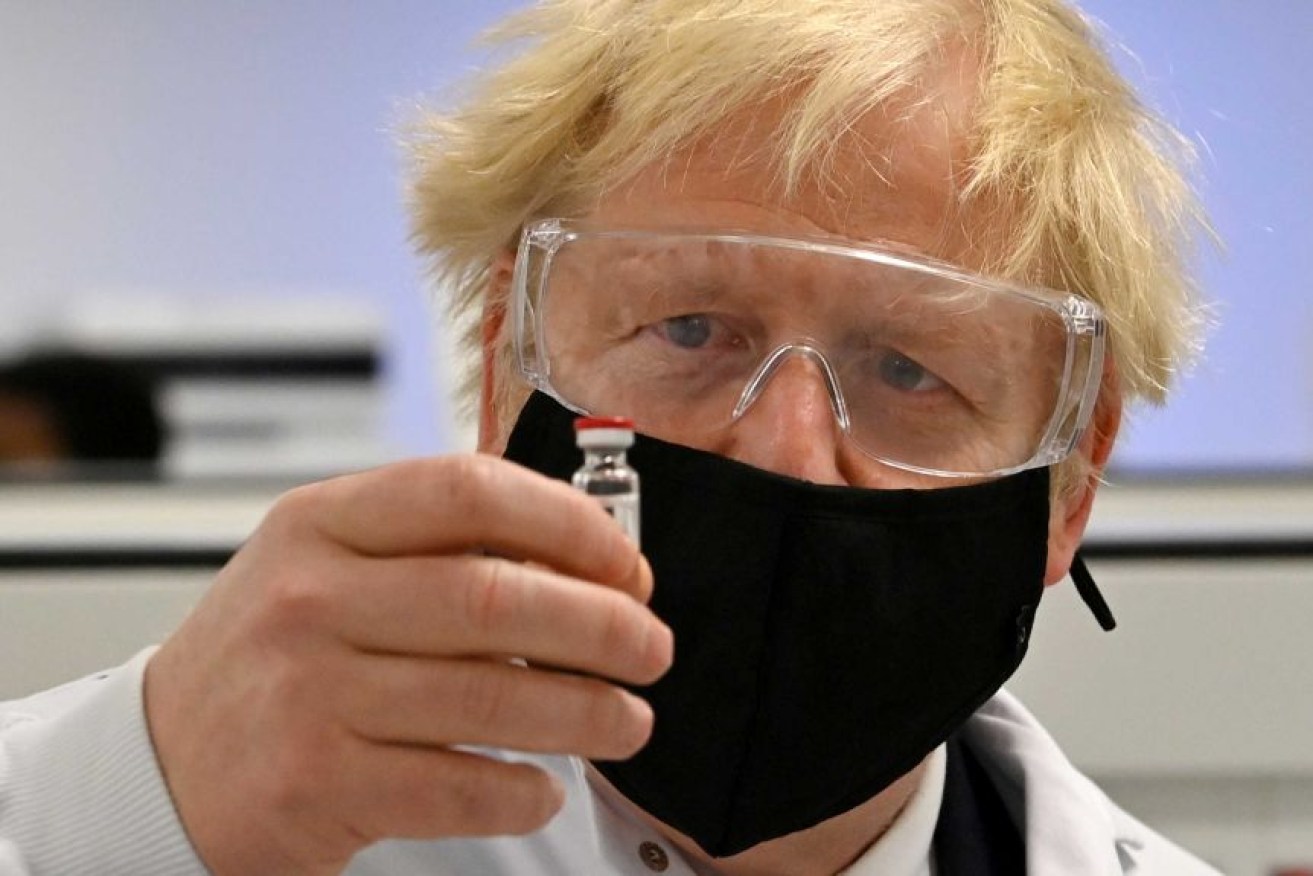Oxford vaccine ‘the holy grail’ in controlling virus spread, says expert
News the Oxford/AstraZeneca vaccine appears to cut coronavirus transmission rates by 67 per cent could prove the “holy grail” of the global rollout, according to a leading pharmacologist.

British Prime Minister Boris Johnson with the Pfizer-BioNTech vaccine. The Oxford AstraZenica candidate has returned transformational results. (Photo: ABC)
The preliminary results of an Oxford University study found the efficacy from two standard doses of the vaccine administered three months apart to be 82.4 per cent.
But it is the fact it also seems to dramatically cut transmission after just one dose that will mean lockdown measures can be lifted sooner, a former chair at Britain’s Faculty of Pharmaceutical Medicine says.
Dr Gillies O’Bryan-Tear said on Tuesday the results, which are yet to be peer-reviewed, were the first definitive estimate of the impact of vaccination on transmission rates.
“If the effect on transmission is confirmed for the Pfizer vaccine too, this would be very positive,” he said.
“If these vaccines reduce transmission to the extent reported, it will mean the easing of social restrictions will be enabled sooner, than if we have to wait for herd immunity – which may never in fact be achieved because of insufficient vaccine population coverage.”
“That would be the holy grail of the global vaccine rollout and these data bring us one step closer,” he added.
Senior British officials have warned since the first vaccine was approved there was no data to indicate what impact it would have on transmission rates.
If a vaccine only prevents a patient becoming severely ill but they are still able to catch and pass on the virus, then everyone needs to have received a jab to be protected.
But if the vaccine also stops someone hosting and spreading the virus, then each vaccinated person also protects others.
But O’Bryan-Tear warned that, as yet, there is little data to show how the researchers calculated the 67 per cent reduction in transmission in vaccinated participants compared to unvaccinated participants.
The paper is currently under review at the Lancet ahead of publication.
-AAP












